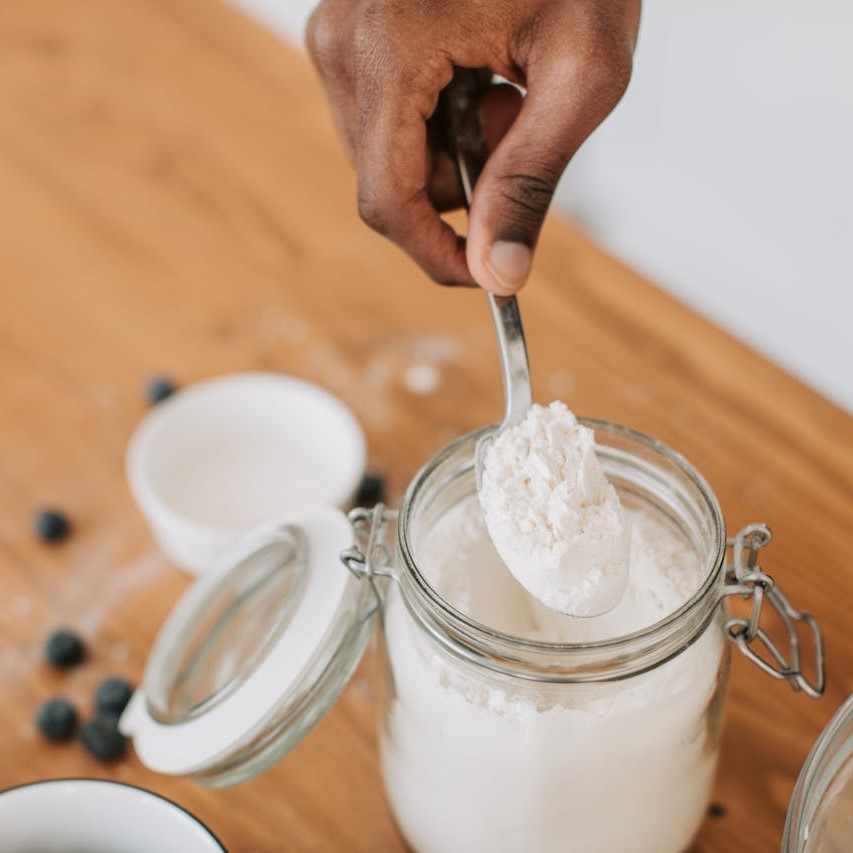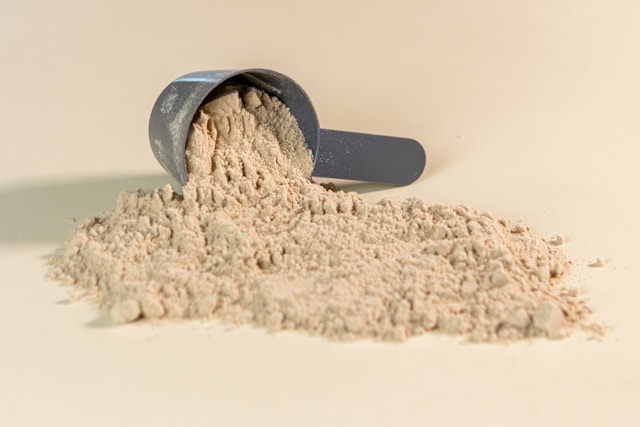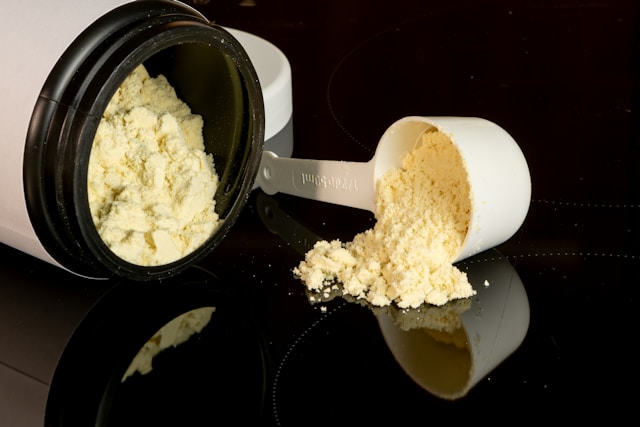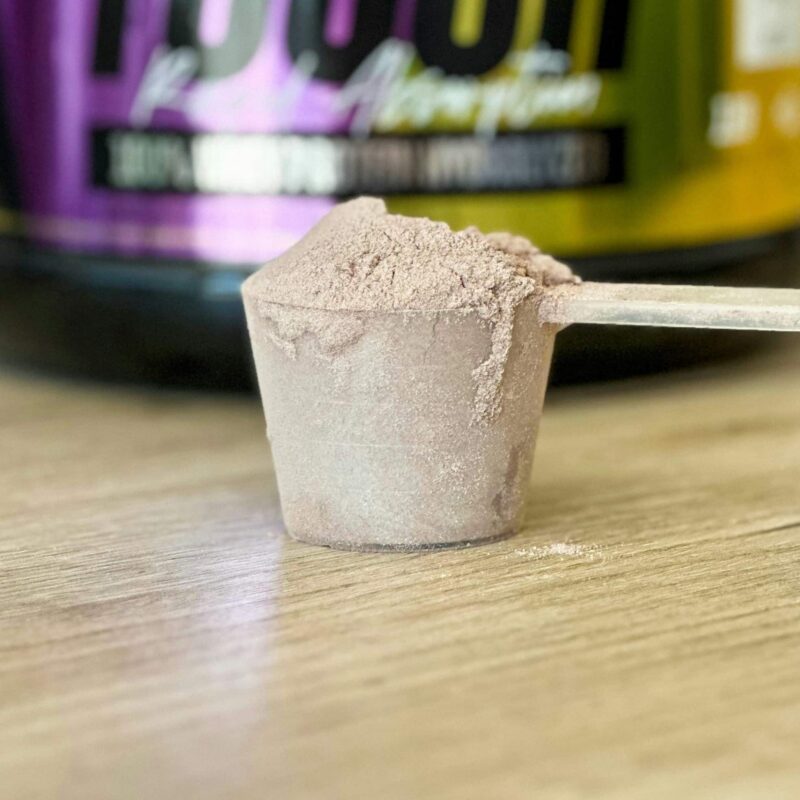
Blog
Unveiling The Truth- Are Protein Powders Natural?

While coming across protein powders, you might have thought, “Are protein powders natural? Should you really be taking them? Will they have any side effects?”
Even if you didn’t think about this yourself, the people in your surroundings might have convinced you to believe this myth about protein powders.
But, the fact that protein powders are natural or not has several claims. Also, people often associate unnatural products with potential side effects, and that’s where the main problem comes from.
So, let’s get into the details and find out whether you should have protein powders.
What is a protein powder?

If you’re a fitness lover, you must already know the answer, and it might sound like a silly question.
For people new to the fitness industry, protein powder is a kind of supplement that helps gain muscles and provides several other benefits. They are powdered, and mostly derived from milk or plant sources.
The fact that protein powders are derived from milk or plant sources poses the question of whether they are natural or not.
So, are protein powders natural?
The thing is, protein powder isn’t naturally occurring. Although made from natural sources, they undergo several processes to achieve the final product in powdered form. Also, to ensure the powder powder lasts, manufacturers have to add other ingredients to it.
While it’s true that protein powders provide nutritional benefits, we still need to study their manufacturing process to check whether they are safe or not.
The thing is, we cannot say that all protein powders are natural. In fact, protein powders are processed foods. Even if your manufacturer claims their protein powder is natural, it cannot be. That’s because protein powders are not grown on trees or plants. They are byproducts of some processes (like whey protein, which is a byproduct of the cheese-making process) or are extracted from animal or plant sources.
Thus, it comes down to the point that protein powders are only nutritional supplements and not naturally occurring foods.
What makes protein powders unnatural?

The fact that protein powders are derived from some processes and are extracted from plant or animal sources is the best proof that they aren’t naturally occurring.
Also, these processes occur in laboratories or production plants and not in kitchens. Thus, protein powders don’t grow on trees, and we don’t cook them in the kitchen. In order to obtain the complete powdered form, these products go through several processes.
In these processes, several ingredients are added to protein powders to obtain the desired form and make them last longer. While protein powders are fine to consume, adding artificial flavors and sweeteners can make you step back. That is the main reason why we don’t classify protein powders as natural because several other ingredients are added to them.
Does that mean you shouldn’t have protein powders?
No.
Just because protein powders are not natural doesn’t mean they shouldn’t be a part of your diet.
Remember the times when we used to drink Milo and Horlicks in our childhood? They weren’t natural, either. Still, they were considered to be the best to help our bones grow.
Those fancy and huge jars came with so many claims to help us grow taller and stronger and make our minds sharp. Didn’t we believe all that to be true?
We can apply the same scenario to protein powders too.
After all, they are nutritional supplements, and consuming them can bring no harm. The nutritional value of protein powders is highly beneficial in providing muscle strength and providing other health benefits.
It’s better to rely on natural protein sources

The thing is, whole foods are still the best option if you want to get protein.
While protein powders are an excellent source of high-quality protein, the addition of several ingredients can also pose health risks.
That is why the best source is natural and whole foods. You can get protein from eggs, milk, fish, etc. We also recommend choosing them first to meet your nutritional requirements.
You can also choose high-quality protein powders

The thing is, most of the time, we cannot fulfill our nutritional requirements from natural foods.
In such a case, it’s fine to switch to a protein powder.
You can try our Hyper Whey, which comes with an 80% protein concentration and includes minimal ingredients to keep you healthy. This unflavored protein powder also has a good EAA and BCAA concentration.
On the other hand, if you want to go for animal or plant-based protein powders, be sure to check the ingredients and study the label. This will help you choose the right protein powder that matches your fitness needs.
Apart from checking the ingredients, it’s necessary to keep the protein powder intake to a limit. If you consume too much protein powder, you can face problems like digestion issues, kidney damage, and acne.
Most of these problems also arise when you’re allergic to certain ingredients in the protein powder.
Take-away message
All in all, choosing a protein powder to meet your fitness goals is a great choice.
However, as protein powders aren’t natural, you should first opt for natural food sources to meet your protein requirements.
Still, using supplements like protein powders isn’t bad. Although protein powders aren’t natural themselves, they are mostly derived from natural sources. You only need to be careful about the added ingredients.
If you aren’t sensitive to protein powders and your jar doesn’t contain added sugars, you can include a protein powder in your diet to meet your nutritional needs.












